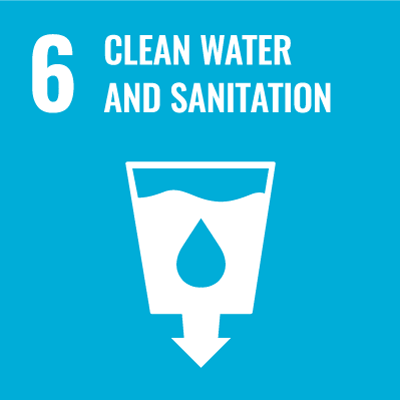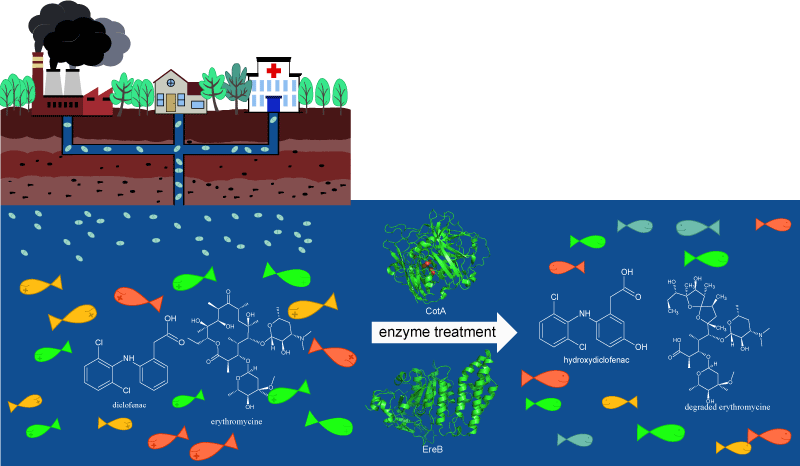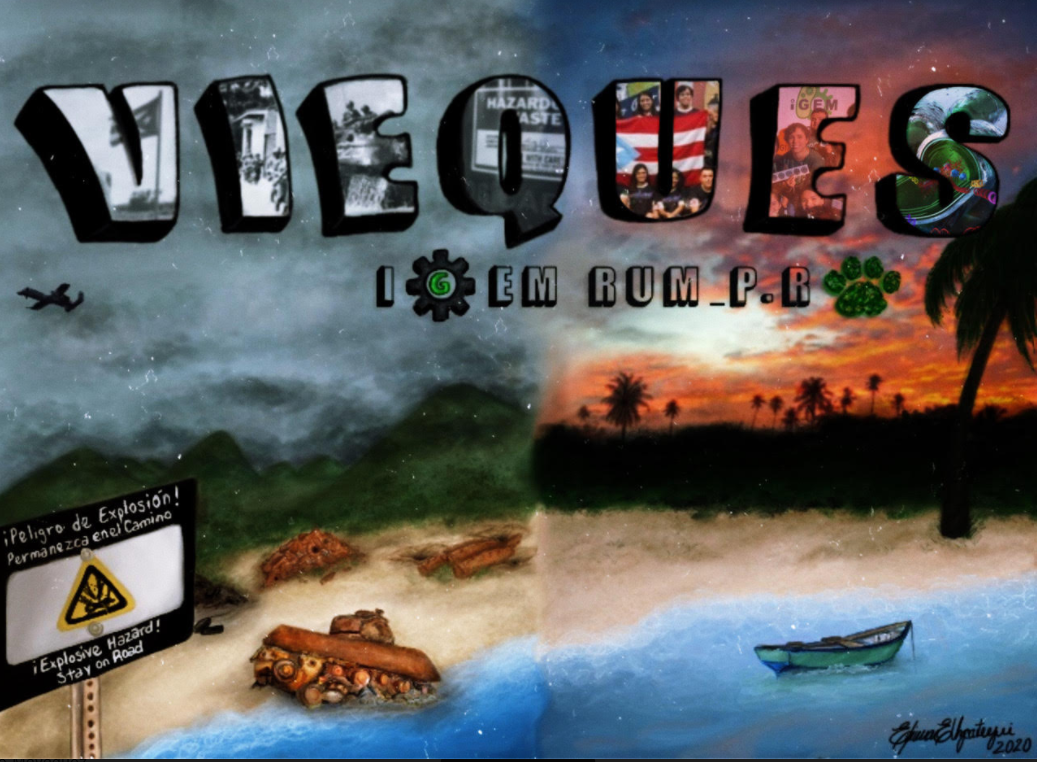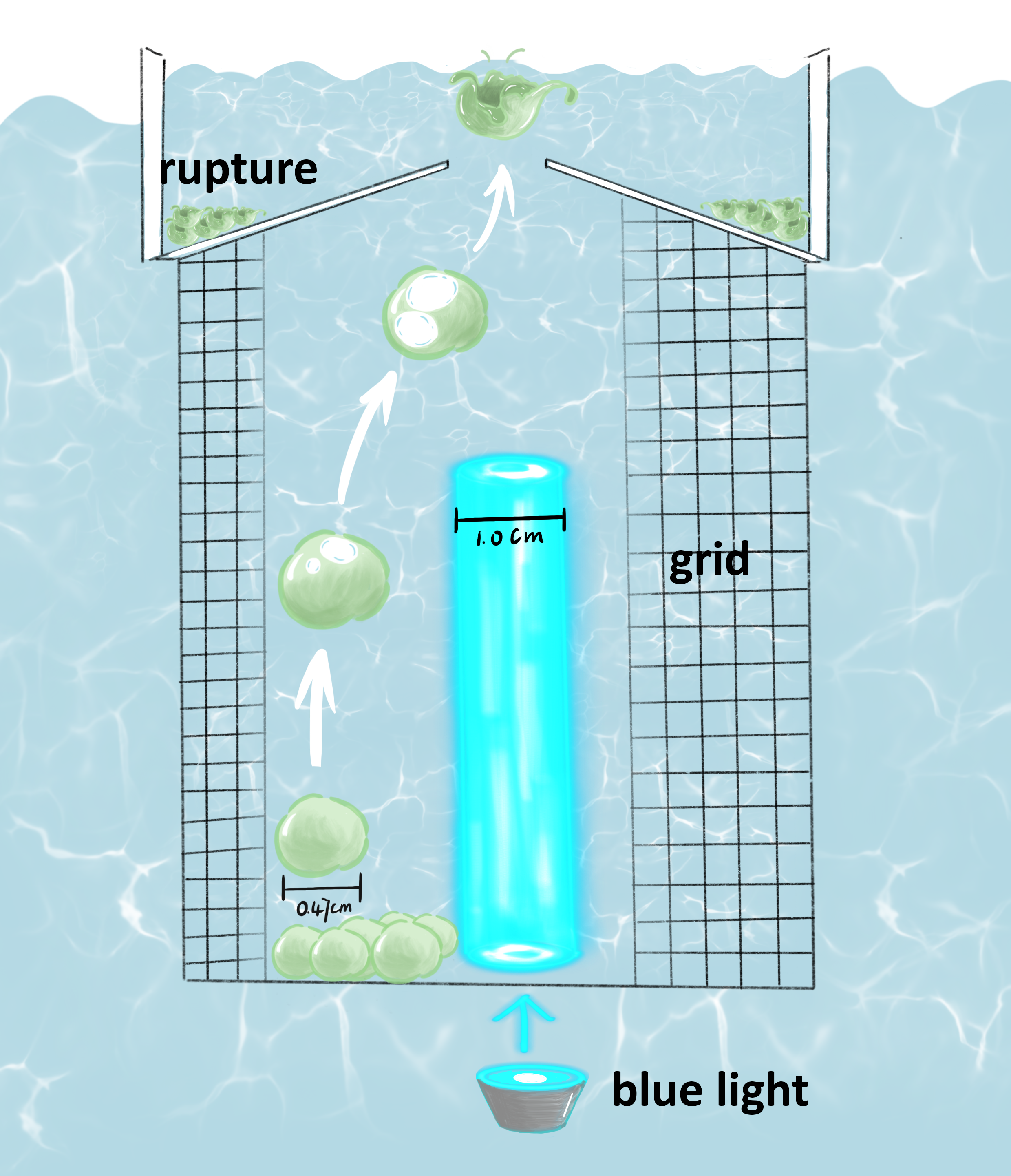World Water Day: iGEM and SDG 6
by Linda Kahl
Access to clean, fresh water is a privilege many may take for granted. Yet, according to the United Nations, 2.2 billion people around the world lack access to safe water. World Water Day, held annually on March 22, is dedicated to raising awareness about the global water crisis and focusing attention on Sustainable Development Goal (SDG) 6: access to water and sanitation for all by 2030. In honor of this day, we’d like to highlight the accomplishments of iGEM teams tackling the global water crisis with synthetic biology.
““Clean water, the essence of life and a birthright for everyone, must become available to all people now.””
SDG 6 – the water goal – not only aims for clean water and sanitation across the globe, it also underpins many of the other SDGs. Access to clean, fresh water is essential not only to health, but also to sustainable ecosystems, food security, and socio-economic development.
Graphical abstract of pharmaceutical pollution sources, adapted by TU_Darmstadt, from L. Arregui, M. Ayala, X. Gómez-Gil et al. Laccases: structure, function, and potential application in water bioremediation, Microb Cell Fact, 2019, 18: 200, https://doi.org/10.1186/s12934-019-1248-0
At iGEM, teams from all over the world are working together to engineer biological solutions for clean water. Highlights from some of the 2020 iGEM teams focusing on water quality include:
Aalto-Helsinki (Finland) engineered “SINISENS” a biosensor for detecting macrolide antibiotics that could aid in optimizing the removal of pharma pollution from wastewater. Nominee, Best Environmental Project, Overgrad Division.
CLS_CLSG_UK (United Kingdom) designed a system for immobilizing bacteria while allowing rapid breakdown of cocaine early in the wastewater treatment process. iGEMers Award, High School Division.
Sorbonne_U_Paris (France) designed photosynthetic microalgae that could efficiently degrade the herbicide atrazine, a major pollutant in the Seine river. Winner, Best Plant Synthetic Biology, Undergrad Division.
Stockholm (Sweden) designed a modular biosensor for the detection of persistent organic pollutants. Nominee, Best Environmental Project, Overgrad Division.
TU_Darmstadt (Germany) developed “B-TOX”, a bacterial biofilm for wastewater treatment that contributes to the responsible and sustainable use of water. Nominee, Best Environmental Project, Overgrad Division.
TU_Kaiserslautern (Germany) modified the green algae Chlamydomonas reinhardtii to decompose diclofenac and other micropollutants found in water. Winner, Best Environmental Project, Overgrad Division.
Waterloo (Canada) developed the “REMINE” system to remove and recover toxic but valuable heavy metals from electronic manufacturing wastewater. Nominee, Best Manufacturing Project, Undergrad Division.
UZurich (Switzerland) created a bioreporter system based on plant pathogen recognition receptors for detecting environmental contaminants. Winner, Best New Application, Undergrad Division.
A postcard by Team RUM-UPRM illustrating the need for bioremediation of Mercury and RDX contamination in Vieques, Puerto Rico.
Cadmium removal system design by Team CSU_China.
Water quality was also the focus of these iGEM 2020 teams:
Antibiotics: FSU (United States, Silver Medalist)
Biofilm: SUSTech_Shenzhen (China, Gold Medalist), Tsinghua (China, Gold Medalist), UM_Macau (Macao, Gold Medalist)
Drug residues: Stuttgart (Germany, Gold Medalist)
Environmental hormones: Shanghai_high_school (China, Silver Medalist)
Heavy metals: CSU_CHINA (China, Gold Medalist), RUM-UPRM (Puerto Rico, Bronze Medalist), Tuebingen (Germany, Gold Medalist), GW_DC (United States)
N-Nitrosamines: MRIIRS_FARIDABAD (India, Bronze Medalist)
Pathogens: Austin_UTexas (United States, Gold Medalist)
Perfluoroalkyl substances: USAFA (United States, Gold Medalist)
Pesticides: Alma (United States, Gold Medalist), EPFL (Switzerland, Gold Medalist)
Phosphorous: Duesseldorf (Germany, Silver Medalist), Nanjing_high_school (China, Silver Medalist), Qdai (Japan, Silver Medalist), Shanghai_HS (China, Silver Medalist), UFlorida (United States, Bronze Medalist)
Wet wipes: BGU-Israel (Israel, Bronze Medalist)
We are proud of the progress all iGEM teams have made in using synthetic biology to solve local problems and tackle global challenges. If you would like to join iGEM in addressing the UN Sustainable Development Goals, we invite you to start an iGEM team for the 2021 season, become an iGEM partner or sponsor, or witness the accomplishments of the teams at the 2021 Giant Jamboree. We look forward to welcoming you to the iGEM community!











